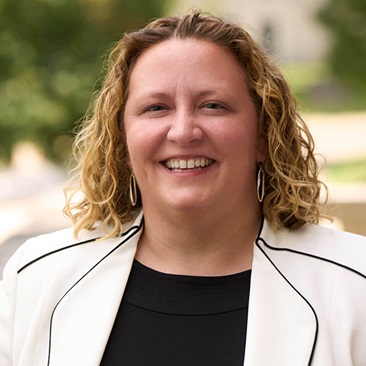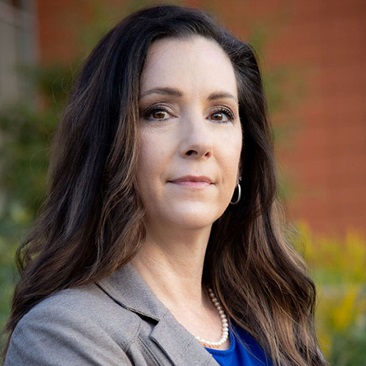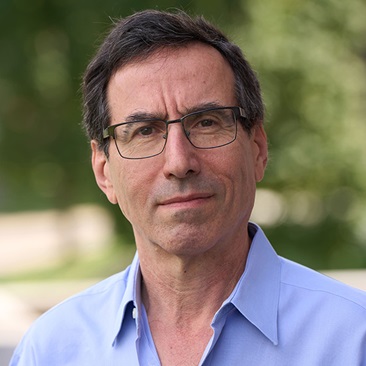Maxwell Welcomes New Faculty for 2024-25
September 9, 2024
Daniel Daneri, assistant professor of political science, is teaching courses in American politics, including congressional politics and interest groups. His areas of expertise include labor politics, interest groups, environmental politics and inequality. His work has been published in journals such as the Review of Policy Research and Current Opinion in Environmental Sustainability. He has over a decade of experience as an organizer and canvassing trainer in the labor, economic justice, and environmental movements. In 2024, he received the American Political Science Association's Dorothy Day Award for Best Paper in Labor Politics and the A. Philip Randolph Award for Best Graduate Student Paper for his article on the politicization and polarization of the National Labor Relations Board. Daneri is expected to be awarded a Ph.D. from Princeton University in December 2024. He received a M.S. in environment and natural resources from Cornell University in 2018.
Julia Haines, assistant professor of anthropology, is teaching classes on historical archaeology, the Indian Ocean, inequality, and disease. She joins Maxwell from Cornell University where she was a Mellon Postdoctoral Fellow for the Society for the Humanities and the Department of Anthropology since 2022. Additionally, she has been a fellow in the Center for Comparative Archaeology and the Department of Anthropology at the University of Pittsburgh and with the Center for Advanced Spatial Technologies at the University of Arkansas. Her work has been supported with funding from organizations such as the National Endowment for the Humanities, the Fulbright Institute of International Education, the American Council of Learned Societies, the Social Science Research Council, and the National Science Foundation. She has written numerous papers and co-edited the book “The Archaeology of Modern Worlds in the Indian Ocean” (University Press of Florida, 2023). She received a Ph.D. from the University of Virginia in 2019.
Minjung Kim, assistant professor of public administration and international affairs, is teaching courses in nonprofit management. She is also an inaugural visiting research fellow at Gradel Institute of Charity at Oxford University. Previously, she served as an assistant professor for the Department of Political Science and Public Administration at the University of Alabama at Birmingham, and she was a postdoctoral fellow at the University of Pennsylvania. Her work has appeared in the Journal of Public Administration Research and Theory, Public Management Review, and Nonprofit and Voluntary Sector Quarterly, among others. Her recent honors include an honorable mention for the 2024 Gabriel G. Rudney Memorial Award for Outstanding Dissertation in Nonprofit and Voluntary Action and the 2022 Emerging Scholar Award, both from the Association for Research on Nonprofit Organizations and Voluntary Action. She is a research affiliate for the Maxwell-based Program for the Advancement of Research on Conflict and Collaboration. She received a Ph.D. from American University in 2021.
Rebekah Lewis joined the Maxwell School as a faculty fellow in public health. She is a senior-level program evaluation specialist with more than 15 years of experience in health and higher education settings. In her prior role at the Ottawa University Heart Institute, she provided program evaluation and qualitative research expertise for a variety of women’s cardiovascular disease prevention projects at the Canadian Women’s Heart Health Centre. Previously, she served as the program evaluation lead for health professions in the Faculty of Medicine and Health Sciences at McGill University and held positions as a course lecturer and research associate at McGill and the University of California’s Bixby Center for Global Reproductive Health. Her work has been featured in the Journal of Occupational Therapy Education, Contraception and the American Journal of Obstetrics and Gynecology, among other publications. Her current research focuses on improving primary prevention of cardiovascular disease among high-risk women. She received a master of public health from Boston University School of Public Health in 2001.
Jiahuan Lu, associate professor of public administration and international affairs, is teaching courses in public and nonprofit management and organization theory. He previously served as a faculty member at Mississippi State University and at Rutgers University, Newark, where he served as an associate professor since 2020 and directed the master of public administration program since 2022. He has published over 40 articles in journals such as Public Administration Review and the Journal of Public Administration Research and Theory. He serves as associate editor for three journals and on the editorial board of two additional journals. His work has been supported by the RGK Center for Philanthropy and Community Service at the University of Texas at Austin as well as Rutgers University. In 2022 he received the President’s Award from the Association for Research on Nonprofit Organizations and Voluntary Action. He earned a Ph.D. from the University of Maryland, College Park, in 2014.
Elizabeth Martin, assistant professor of sociology, is teaching courses in social stratification and inequality, political economy, and quantitative methods. Prior to joining Maxwell, she was a Frank H. T. Rhodes Postdoctoral Fellow at Cornell University since 2022. Her work has been featured in Sociological Forum, Social Currents and the American Journal of Sociology. She has received funding from academic institutions as well as the National Science Foundation, which awarded her a graduate research fellowship. Her numerous awards include the American Sociological Association’s Sociology of Law Section Student Paper Award in 2020 and the 2018 Randy Hodson Graduate Student Paper Award from the Department of Sociology at The Ohio State University, where she received a Ph.D. in 2022.
Laura-Anne Minkoff-Zern, associate professor of geography and the environment, is teaching Critical Geographies of Food, Labor Across the Food Chain, and Global Agrifood Inequality. She previously worked as an assistant and associate professor of food studies at the Falk College of Sport and Human Dynamics. She is a senior research associate for the Center for Policy Research and research affiliate for the Lerner Center for Public Health Promotion and Population Health as well as graduate director of food studies at Syracuse University. In addition to her first monograph, “The New American Farmer: Immigration, Race, and the Struggle for Sustainability” (MIT Press, 2019), she has published in journals such as Geoforum, Human Geography, The Journal of Peasant Studies, and Renewable Agriculture and Food Systems, among others. Her forthcoming book “Will Work for Food: Labor Across the Food Chain,” looks at labor across food sectors. She received the 2024 American Association of Geographers Fellowship Early/Mid-Career Award and numerous other accolades. Minkoff-Zern earned a Ph.D. in geography from the University of California, Berkeley in 2012.
Katie Quinn, assistant professor of sociology, is teaching courses for the new integrated learning major in law, society and policy, including criminology; criminal justice; and gender, crime and justice. She previously worked as an assistant professor in the Department of Criminology and Criminal Justice at the University of Missouri, St. Louis, and was a postdoctoral fellow at the University of Toronto and a research associate at the University of Nottingham. Her research agenda sits within the sociology of punishment, focusing on nonprofit organizations in the criminal justice sphere in Canada, the United Kingdom and the United States. Her work has been featured in Social Problems, the British Journal of Criminology, Punishment & Society and other journals and edited books. She was the recipient of a Social Sciences and Humanities Research Council Joseph-Armand Bombardier Doctoral Scholarship and numerous academic grants and awards. She received a Ph.D. from the University of Toronto in 2021.
Jack Reilly, associate teaching professor of public administration and international affairs, is teaching courses in the policy studies program, including Methods of Public Policy Analysis, as well as Introduction to Statistics. He conducts research in American politics and policy, including policy attitudes, political behavior and political geography, and in quantitative social science, including social networks and complex systems. He previously served on the faculty at New College of Florida, most recently as an associate professor of political science. He co-authored a chapter in the book “Race, Class, and Social Welfare: American Populism Since the New Deal,” published by Cambridge University Press. His work has also appeared in peer-reviewed journals such as Political Behavior, Electoral Studies, and Social Networks. His research has been supported by the American Political Science Association and other organizations. He received a Ph.D. from the University of California, Davis, in 2013.
Naomi Shanguhyia, associate teaching professor of geography and the environment, is teaching courses in environment and society, development geography, and geographies of food. Though she has taught courses at Maxwell since 2019, she joins full-time from the Falk College of Sport and Human Dynamics, where she served as an associate teaching professor in the food studies program. She has held various leadership and administrative roles within Syracuse University that include service as the associate director of the Renée Crown University Honors Program and as a Fulbright Fellowship campus evaluator. Before joining Syracuse in 2014, she worked for two years as a lecturer in the Department of Geography and Environmental Sustainability at the State University of New York College at Oneonta. She is the co-principal investigator for a project titled “Improving Health in Diaspora Populations through Culturally Relevant Meal Adjustments” that has received funding from the Metlife Foundation. She received a Ph.D. from West Virginia University
Stephan Stohler, associate professor of political science, is teaching courses in comparative politics and law. He previously served as a faculty member at the University at Albany, most recently as an associate professor of political science. His research has been supported by the State University of New York and the National Science Foundation, which funded a project titled “Comparative Free Speech Jurisprudence” that included collaboration with Maxwell colleague Thomas M. Keck. Stohler’s work has appeared in Studies in American Political Development, Journal of Law and Courts, and Law & Social Inquiry, among other journals and publications. He is author of “Reconstructing Rights: Courts, Parties, and Equality Rights in India, South Africa, and the United States” (Cambridge University Press, 2019). He received a Ph.D. and a J.D. from the University of Pennsylvania in 2014 and 2010, respectively.
Britt Tevis, assistant professor of history, is also the Phyllis Backer Professor of Jewish Studies in the Jewish Studies Program at the College of Arts and Sciences. At Maxwell, she is teaching courses in American Jewish history. She previously served as a postdoctoral follow at the Institute for Israel and Jewish Studies at Columbia University. She is currently completing her first monograph on American Jewish lawyers, and her anthology, a collection of primary sources exploring antisemitism in the United States, will be published by Yale University Press in 2025. She has written numerous book chapters, articles and other scholarly pieces and has been honored with several awards including the 2022 Wasserman Essay Prize from the American Jewish Historical Society. She received a Ph.D. from the University of Wisconsin, Madison, in 2016, and a J.D. from the University of Wisconsin Law School in 2012.
Yulya Truskinovsky, associate professor of economics, is teaching courses in health and labor economics. She previously served as an assistant professor in the Department of Economics at Wayne State University, and as a Sloan Fellow at Harvard University’s Center for Population and Development Studies. Additionally, she was a faculty affiliate for the Detroit Partnership for Education Equity & Research, a member of the Demography of Family Caregiving Research Network at the Michigan Center on the Demography of Aging, and a research fellow for the Center for Financial Security at the University of Wisconsin, Madison. Her work has been supported by organizations including the National Institutes of Health which awarded her $3 million for a project titled “The Effects of the COVID-19 Pandemic on Long-Term Care for High-Need Older Adults with and without Alzheimer’s Disease and Related Dementias.” She co-wrote a chapter in the book “Who Gets What? The New Politics of Insecurity” (Cambridge University Press, 2021), and her work has been featured in the Journal of Labor Economics, the Journal of Human Resources and The Gerontologist among other publications. She received a Ph.D. from Duke University in 2016.
Rick Welsh, professor of sociology and senior research associate for the Center for Policy Research, is teaching courses in environmental sociology, food policy and research methods. He previously served as the Falk Family Endowed Professor of Food Studies at Falk College of Sport and Human Dynamics. He chaired Falk’s Department of Nutrition and Food Studies from 2014-21. Before joining Syracuse, he was a faculty member at Clarkson University and a visiting scholar in a branch of the Economic Research Service for the U.S. Department of Agriculture, among other roles. He is associate editor of Renewable Agriculture and Food Systems (formerly American Journal of Alternative Agriculture) and recently served on the U.S. Department of Agriculture/NIFA Sustainable Agriculture Systems Review Panel. He received the 2016 Excellence in Research Award from the Agriculture Food and Human Values Society and was the co-recipient of the 2016 Best Paper Award from the Rural Sociological Society for “Intellectual Property, Scientific Independence, and the Efficacy and Environmental Impacts of Genetically Engineered Crops.” His work has been supported by the U.S. Department of Agriculture, U.S. Environmental Protection Agency and other entities. He received a Ph.D. from Cornell University in 1995.
Published in the Fall 2024 issue of the Maxwell Perspective
Related News
School News

Dec 2, 2025
School News

Oct 13, 2025

